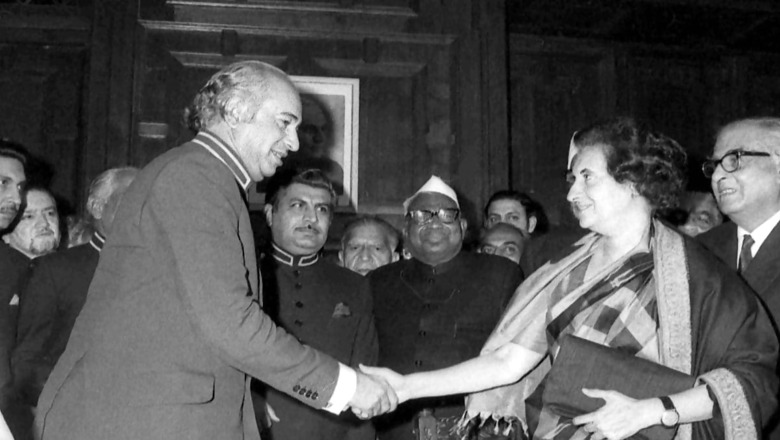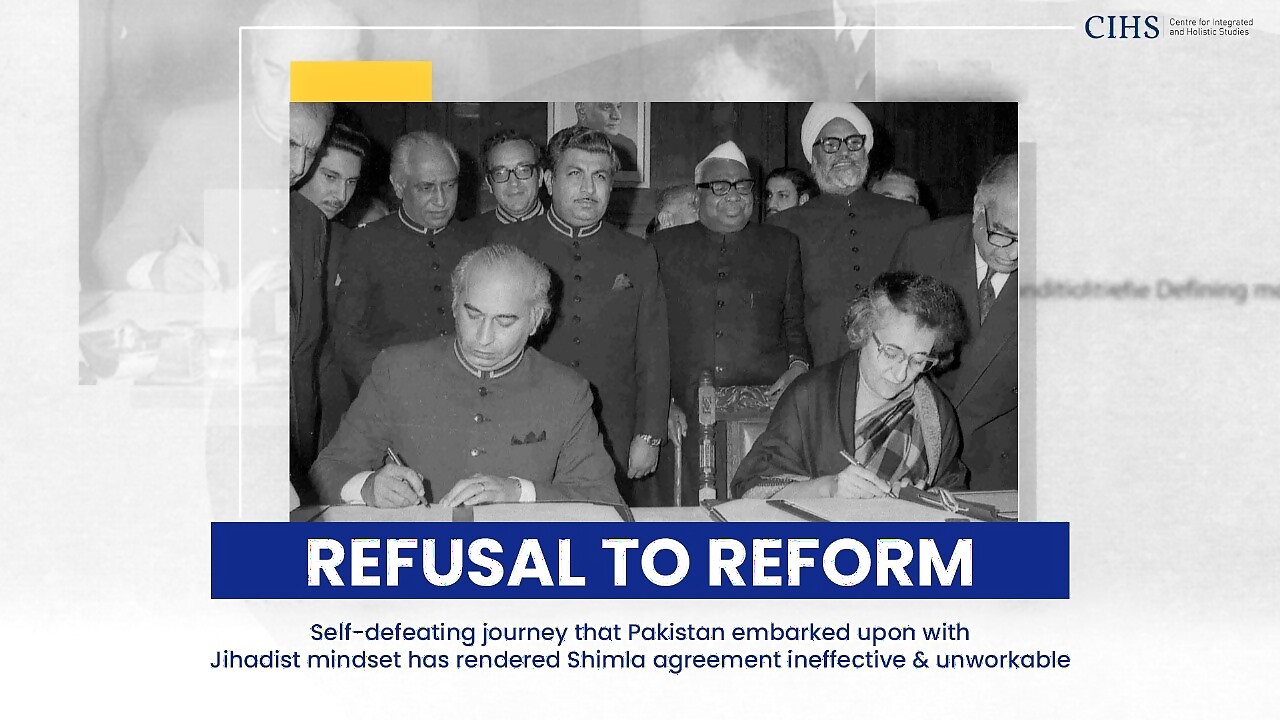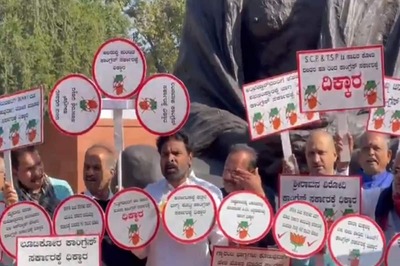
views
The Simla Accord, inked 52 years ago on July 2, 1972, by then-Indian Prime Minister Indira Gandhi and Pakistani President Zulfiqar Ali Bhutto, bears testimony to Islamabad’s refusal to learn its lessons. It’s also a missed opportunity for Pakistan to evolve as a well-meaning, affable, and socio-economic development partner on the western borders that Bharat was looking for.
The 1947 partition of Bharat by departing British imperial forces inflicted a huge injury that cannot be easily forgotten. Instead of metamorphosing into a well-meaning society based on true Islamic values, Pakistan resorted to the genocide of Bengali Hindus in East Pakistan in the most inhuman way in 1971.
Pakistan had to eat humble pie after its defeat at the hands of the Indian Army and the consequent liberation of Bangladesh. The Simla Agreement, concluded in Barnes Court (now christened Raj Bhavan), was intended to bring about lasting peace in South Asia, especially between Bharat and Pakistan. However, this did not happen as predicted, even before the ink on the Simla Agreement had dried. Things did not work out as the Sunni extremist leadership refused to acknowledge the magnanimity of Bharat in returning their 93,000 war prisoners without a word. Questions were raised about the intent of Indira Gandhi, who returned all major territories of Pakistan that had come under Bharat’s control in the aftermath of the war.

The intentions and goals articulated in the Simla Agreement appeared magnificent on paper, but rang hollow in reality. While the commitment to a direct, bilateral approach to problem-solving and an emphasis on face-to-face interactions were laudable on the surface, Pakistan, with its long history of deception and broken promises, saw the accord as a strategic pause rather than a genuine peace initiative.
Of the Simla Agreement’s six important clauses, the pledge to observe the Line of Control (LoC) in Jammu and Kashmir was the most significant. Yet, it was this very commitment that Pakistan repeatedly and flagrantly violated. The agreement’s stipulation that disagreements be settled amicably and that neither government would unilaterally alter the status quo was similarly disregarded.
Pakistan, true to its increasingly rogue nature, continued to stoke the fires of turmoil, culminating in the Kargil War in 1999. This blatant violation of the LoC served as a stark reminder that Pakistan had never truly embraced the principles of the Simla Agreement.
The accord’s emphasis on mutual respect for each other’s geographical integrity and political independence was blatantly disregarded by Pakistan. Driven by its malicious intent toward Kashmir, Pakistan repeatedly attempted to intervene in India’s domestic affairs, shattering the very foundation of the agreement. The pledge to desist from hostile propaganda proved to be a sham, as Pakistan’s official machinery continued to spew anti-India rhetoric, actively fuelling hatred and division.
Despite the Simla Agreement, Pakistan’s conduct over the decades has demonstrated its deceit. The Kargil conflict, in which Pakistani soldiers penetrated Indian territory along the LoC, was a clear act of aggression that shattered the already fragile agreement. This fight, which lasted for more than 60 days, exposed Pakistan’s true character, reinforcing its reputation as an untrustworthy neighbour.
Indira Gandhi, acclaimed as a competent leader, was heavily criticised for signing the Simla Agreement without achieving a resolution to the Kashmir conflict. The pact was viewed as a strategic failure, a concession that failed to capitalise on India’s resounding victory in the 1971 war. Pakistan’s claim to Kashmir, combined with its repeated efforts to internationalise the issue, has rendered the Simla Agreement ineffective and meaningless.
The accord’s history is one of unfulfilled promises and broken expectations. It underscores the futility of trusting a country that has repeatedly proven its propensity to destabilise peace for geographical advantage. Pakistan’s repeated betrayals, from the Kargil conflict to its current backing of cross-border terrorism, demonstrate that it never intended to comply with the Simla Agreement.
The agreement, while ostensibly a plan for peace, was a strategic failure that failed to address the two countries’ core challenges. It allowed Pakistan to recover and rearm, which eventually led to other instances of conflict. India’s generous gesture of returning prisoners of war (POWs) and territory was met with Pakistan’s unwavering enmity, demonstrating once more that Pakistan’s word could not be trusted.
Pakistan’s reluctance to respect its pledges, as well as its ongoing efforts to destabilise the region, have shown that any agreement with such a nation is worthless. The Simla Agreement serves as a clear reminder of the drawbacks of naive diplomacy and the importance of taking a hard stance when dealing with a fraudulent neighbour like Pakistan.
The author is a doctoral fellow at Amity University in Gwalior, content head at Centre for Integrated and Holistic Studies. Views expressed in the above piece are personal and solely those of the author. They do not necessarily reflect News18’s views.



















Comments
0 comment